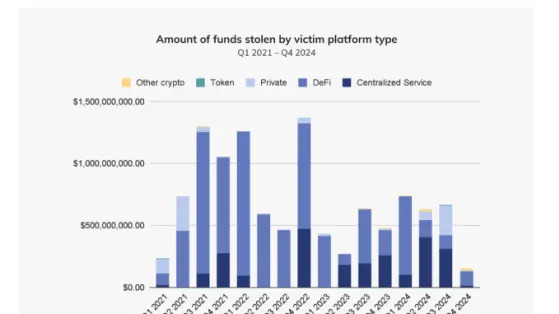There's a long-standing rivalry between the king of cryptocurrencies, Bitcoin (CRYPTO: BTC) , and the coin that many have considered to be the heir to the throne, Ethereum (CRYPTO: ETH) .
But there aren't actually too many similarities between these two, despite what their competition suggests. And there's a much stronger case for buying a lot of one than there is for the other, so let's dive in and analyze the situation.
Bitcoin banks on "scarcity" to drive value
Bitcoin is both a store of value and to a lesser extent a medium of exchange, fulfilling two of the canonical properties of money. Its value is created by demand from investors who recognize its "scarcity".
Due to Bitcoin's supply dynamics, such as the constantly increasing difficulty mining it , it is more favorable for investors to buy it at the price offered today than in the future, when prices are likely to be higher because the coin will be scarcer on a relative basis.
So long investors believe in that investment thesis , those who buy it today can safely assume that there will be someone willing to buy it from them at some point in the future.
Note that even in this idealized view of Bitcoin, there's no guarantee that future prices will be higher for you if you buy and hold it; but there is a mechanism by which prices can be expected to rise on average over the long term, even if the aggregate amount of demand stays static over that period.
Ethereum thrives off its ecosystem
Ethereum is also a store of value and a medium of exchange. But because it's the main coin of its chain, where there's an entire ecosystem of tokens, it additionally has a utility value, as it's a necessary ingredient for paying gas fees when interacting with decentralized finance (DeFi) applications, minting non-fungible tokens (NFTs), issuing smart contracts, and other functions.
When the value of projects hosted on its chain increase because they're successful, it thus ends up increasing the total value associated with the chain, pumping up the price of Ethereum in the process.
The reverse is also true; if investors aren't buying what Ethereum's application developers are offering as token-based products or services on the chain, there won't be as much capital flowing in or staying invested.
So for Ethereum to continue attracting more capital inflows in the future than it has today, it needs to continue developing its core blockchain technology to make its chain a more attractive place for developers and investors alike. If it doesn't consistently match its technical capabilities to what's in demand, talent and capital will go elsewhere.
Consequently, it faces a high risk of competitors attracting its human and financial resources with faster, cheaper, or more efficient services.
This means Ethereum's position is inherently more unstable than Bitcoin's. On one hand it's doubtlessly exposed to more opportunities for growth, as the chain's leaders can pick emerging market segments and attempt to adapt its technology to serve those segments efficiently.
On the other hand, it also faces the constant grinding of capital outflows to newer chains and coins that may be better at niche tasks than what it's easily able to serve or modify itself to serve efficiently.
Ethereum probably won't go to zero as long as it roughly serves most developer and investor needs adequately enough, but it's easy to imagine a future in which it is slowly picked apart by specialists whose only ambitions are to win in smaller segments, like music or sports applications on the blockchain.
Fewer functionalities means fewer ways to get one-upped
Ethereum's history so far indicates that the risk of competitors eating its lunch are not merely theoretical. Cardano , which is currently the ninth-largest cryptocurrency, was developed specifically as a response to Ethereum's perceived failings.
And Solana , while heavily influenced by Ethereum as well, is largely notable because it succeeds where Ethereum doesn't, as it offers less expensive and much faster transactions. Coins developed to compete with Bitcoin, specifically Litecoin , are far smaller, and also far less relevant in the crypto landscape.
This is thus a case where less is more. Bitcoin is hard to usurp because it was developed first, and its unchanging nature is actually part of its appeal, as there are fewer opportunities for it to take a wrong turn relative to industry trends.
Ethereum is already beset by competitors on all sides, and there is little chance that the playing field will shift in its favor, even over the long term.
So between these two coins, especially right now, when Ethereum is struggling against enemies big and small, Bitcoin is the better place to invest your $5,000. There's a chance that Ethereum will still grow faster anyway, but the balance of risk and reward for buying it is not appealing at the moment.
Before you buy stock in Bitcoin, consider this:
Now, it’s worth noting Stock Advisor ’s total average return is 870% — a market-crushing outperformance compared to 167% for the S&P 500. Don’t miss out on the latest top 10 list, available when you join Stock Advisor .





